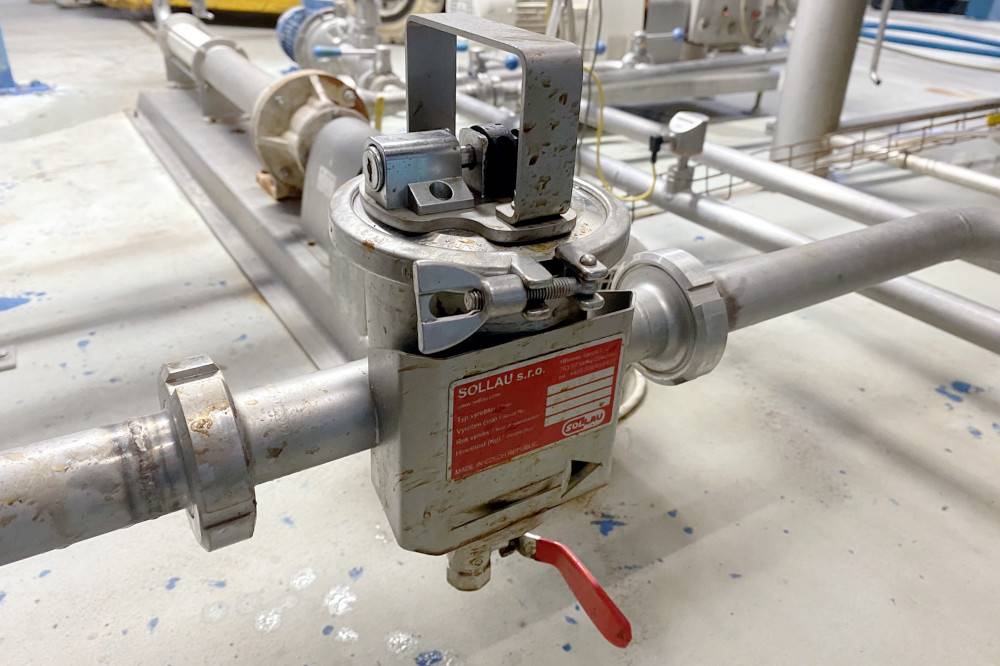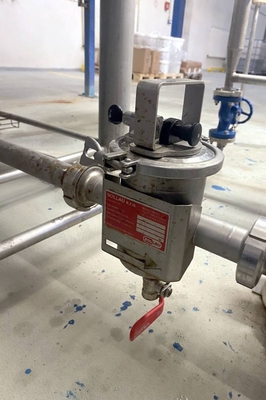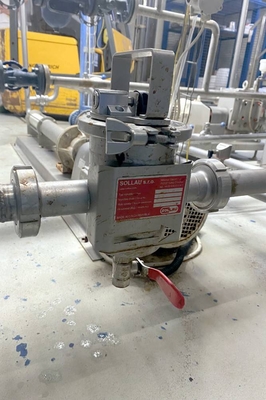11. 7. 2024
How to separate metal particles from fat on a confectionery production line? (case study)

Initial status
One of the leading food manufacturers processes fats for confectionery production. 100 °C hot fat is led through pipes with diameters of 40 and 100 mm.
Problem
In food production, all ferrous contaminants must be removed. Production equipment is regularly cleaned with CIP acid. The temperature of the fat transported through the pipeline network is 100 °C.
 It was necessary to design a sufficiently strong magnetic separator (magnetic flux density of 16,000 G). The applied magnets had to be resistant to the temperature of 100 °C and all the separator components were to be made of an acid-resistant material.
It was necessary to design a sufficiently strong magnetic separator (magnetic flux density of 16,000 G). The applied magnets had to be resistant to the temperature of 100 °C and all the separator components were to be made of an acid-resistant material.
The separator had to be designed so that it could be installed in 40- and 100-mm diameter pipes.
Solution
At SOLLAU, we take pride in being able to manufacture magnetic separators to meet all customer needs. We have supplied the customer with several magnetic filters MSP-S 40 and MSP-S 100.
All filters meet the customer's technical requirements:
- acid resistance
- temperature resistance of the applied magnets up to 100 °C
- high magnetic flux density of 16 000 G
- suitable for pipes DN 40 and DN 100
Benefits of using magnetic filters MSP-S 40 and MSP-S 100 OCTOPUS
The installed magnetic filters can reliably separate ferrous particles starting from a size of 1 µm from the fat, used in the confectionery production.
 Applied equipment: Magnetic filters MSP-S 40 and MSP-S 100 OCTOPUS
Applied equipment: Magnetic filters MSP-S 40 and MSP-S 100 OCTOPUS
Advantages of the magnetic filter MSP-S
- 5-year warranty
- low weight = easy handling
- neodymium magnets with induction up to 16,000 G
- budget variant - attractive price/performance ratio
- standard design for 10 bar pressure
- capturing Fe particles in size from 1 micron,
- quick and easy cleaning
- possible magnetic rods replacement
- double-sheathed protection of magnets
